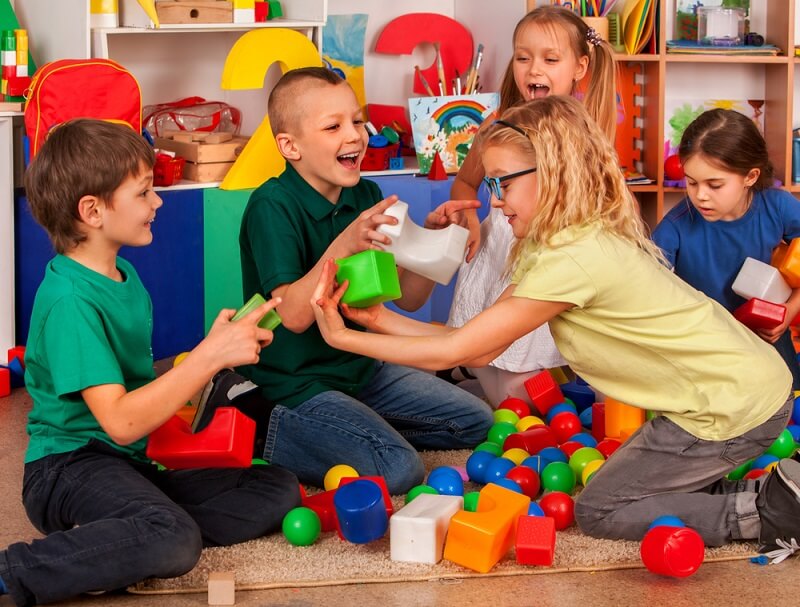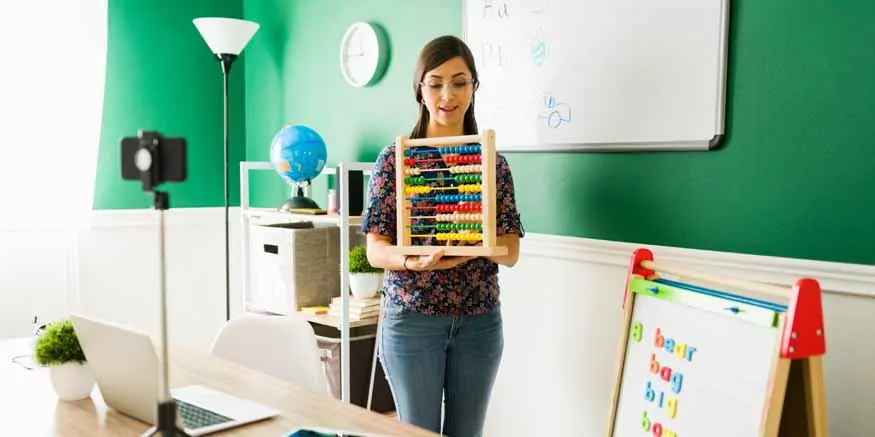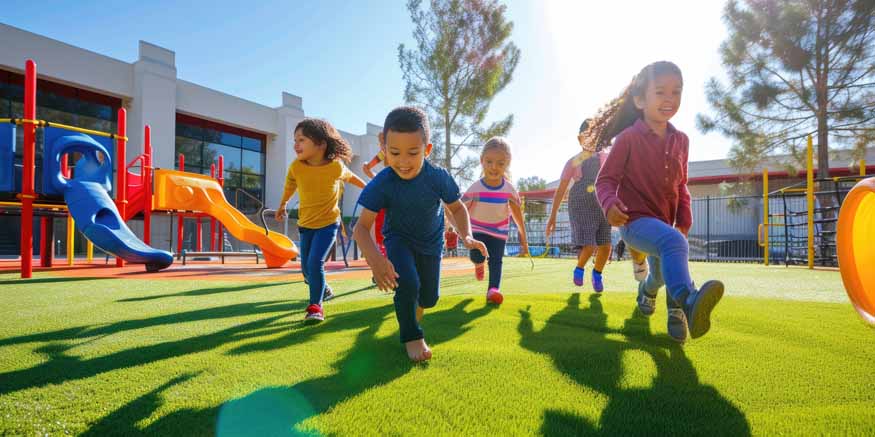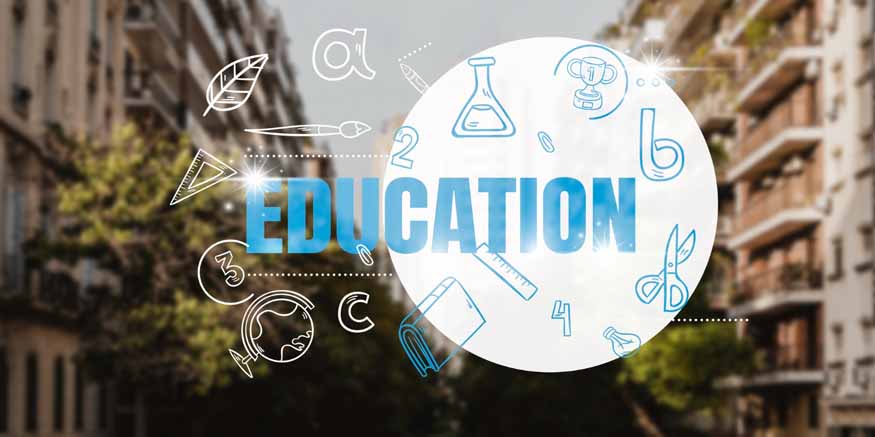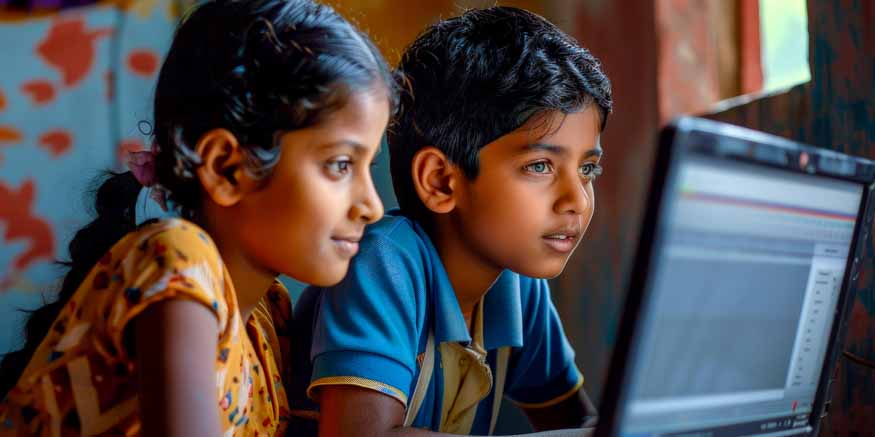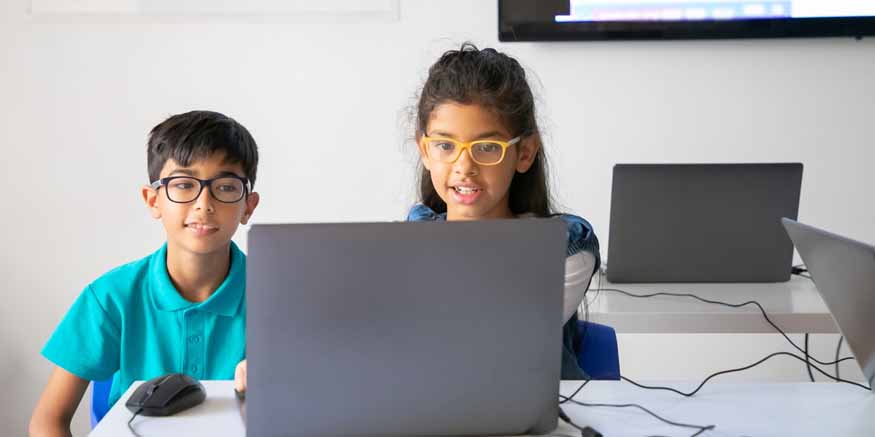Importance of developing social skills
It is important to develop social skills for children because of several reasons. Listed below are some of the benefits of developing social skills.
- Building relationships: Social skills for children are helpful to form positive relationships with their peers, family, and community. Children need to develop social skills of building new relationships by making friends and learning to communicate with others in an assertive and respectful way.
- Developing empathy: Social skills for children are helpful to understand and respond to the emotions and feelings of others. This helps them build empathy, which is an important component of healthy relationships.
- Communication: Social skills for kids help them to learn how to express themselves clearly and effectively, verbally and nonverbally. Good communication skills are essential for building relationships and navigating social situations.
- Conflict resolution: Social skills for kids help them to learn how to manage conflicts and disagreements in a positive way. Learning how to negotiate, compromise, and find solutions that work for everyone are all included as part of this skill.
- Self-esteem: Social skills for kids can boost their self-esteem and confidence. Children will often feel good about themselves and their abilities in an environment where they feel comfortable in social situations and in turn are able to communicate effectively.
As you have read through some of the benefits of developing social skills for children, we can say that overall, it is important to develop social skills in children at an early age as it is essential for their social and emotional development and it can help children in effectively achieving success in all areas of their lives.
Top 10 social skills for children (H2)
Here are our top 10 picks of social skills for children that they must develop.
- Active Listening: Listening to others is the key to effective communication. Children must learn to listen attentively to others, without interrupting or judging them. They need to give their complete attention as a step to practice active listening. Teach them to keep aside everything they are doing and make eye contact. This will ensure that they are giving their complete attention and trying to understand the conversation.
- Empathy: Empathy is the ability to understand and share what others feel. Children must learn to recognize and respond to other’s emotions in a compassionate way. We can support children’s well-being and mental health by teaching empathy, compassion, kindness, and mindfulness. Creating a generation of compassionate children and young people ready to meet the world’s challenges will benefit society too.
- Cooperation: Cooperation is the ability to work with others towards a common goal. Children must learn to work together with others, adjust, and resolve conflicts in a positive manner. When they learn the art of cooperation, they realize the importance and value of teamwork and showing patience during a conflict.
- Respect: Respect is the foundation of all healthy relationships. We can say that children have the skill of respecting others when they are able to treat others with kindness, and compassion regardless of their differences. When you accept somebody the way they are and without any change, you respect them. Respect is something that you learn and does not have to come naturally.
- Communication: Communication is the key to effective relationships. To develop social skills in kids, they must learn to express themselves clearly and listen actively to others. Good communication skills help us develop and maintain relationships with those around us. Hence, effective communication allows children to form strong bonds with peers and teachers, which in turn makes them feel supported and confident.
- Responsibility: Responsibility is the ability to take ownership of one’s actions and decisions. Children must learn to be responsible for their behaviour, their commitments, and their obligations. It means they need to learn to be dependable, make good choices, and take accountability for their actions. We can say that children display good responsible skills when they are able to watch out for the well-being of others.
- Self-control: Self-control is the ability to regulate one’s emotions and impulses. Children must learn to manage their emotions and impulses, and make thoughtful decisions. A few examples of practicing self-control are having 1 burger instead of 5, completing homework before playing or taking a moment to think and cool off before talking to a friend who has upset you.
- Problem-solving: Problem-solving is the ability to find solutions to challenges or conflicts. Children must learn to identify problems, brainstorm solutions, and evaluate their effectiveness. This is an important life skill for children as it allows them to make informed and healthy decisions in their life ahead. When children are allowed to solve their own issues, they will be more confident, happier, more confident and independent. They will also not feel frustrated or disheartened by their inefficiency.
- Assertiveness: Assertiveness is the ability to stand up for oneself in a respectful and confident manner. Children must learn to express themselves in the right way, this includes their needs, wants, and boundaries in a clear and assertive way. It shows that children are assertive when they are able to and willing to stand up for their interests and express their thoughts and feelings, it shows that they are assertive. It helps children communicate with others in a direct and honest manner without intentionally hurting anyone’s feelings.
- Flexibility: Flexibility is the ability to adapt to changing situations and perspectives. As part of developing social skills, children must be ready to accept change, learn to be open-minded and willing to consider new ideas and perspectives. It is important to teach children early in life that life is uncertain and that plans and ways of life will never be constant. In such situations, if a child is flexible, it helps them to adapt quickly.
At Euroschool, we focus on the importance and benefits of developing social skills for kids and also know that social skills help children to form positive relationships, have conversations, develop body language, cooperate, share and even play together. We encourage children to practice and implement the above-mentioned social skills as part of their daily routines. Children with good social skills are often known to have improved mental capacity and cognitive abilities, along with good overall mental health.

